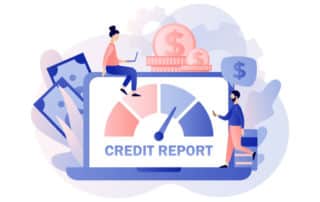
Florida Bankruptcy FAQs
Most people either benefit from either Chapter 7 or Chapter 13 bankruptcy. The facts of your situation, such as your income and circumstances, usually will dictate which chapter is right for you. In most cases, each bankruptcy chapter has specific requirements or qualifications, which will determine what chapter is right for you.
It would be best if you considered Bankruptcy when: 1. Your financial situation is not improving. If you see the balance on credit cards going up or not reducing, your current situation is not improving. Bankruptcy will help you discharge these debts and allow you to have a fresh start.
2. When your family depends on you. If you have family members who rely on you for support, you must have funds necessary to cover the essential expenses such as health insurance, not your unsecured credit cards. Bankruptcy lets you prioritize what is essential. 3. If you might lose your home to foreclosure or your car is in danger of being repossessed. Filing for Bankruptcy can help you avoid repossession and allow you to keep your home. 4. If you are worried about retirement. If you have withdrawn funds from your retirement account to pay off your debts, you are doing yourself more harm than good. A bankruptcy filing is an option to discharge your unsecured debts while protecting all of your retirement accounts, as these funds are typically exempt from creditors.
Many people have questions about the cost of filing for Bankruptcy. While a bankruptcy filing involves lawyer fees and court fees, it is essential to note that these costs allow you to have a fresh financial start, free of unsecured debts.
If you are struggling to pay your credit cards, medical bills, or other financial demands, you cannot afford to sit idle. Merely making the minimum payment on your debts only makes you fall further into debt. File bankruptcy on your own is a risk and often a costly mistake that you can afford. Debt relief agencies, more often than not, will make your situation worse. A Free consultation with a Miami Bankruptcy Lawyer from Miceli Law, P.A. is a no-cost option to learn about Bankruptcy can help you.
Typically, you can keep your car after filing for Bankruptcy. The Chapter 7 Trustee only is interested in any equity your car may have. The car’s equity depends on how much the car is worth in its present condition and how much you owe on your car loan.
The property you can retain will depend on many factors, including the balances owed on these assets, your income, and where you live. When you meet an attorney at Miceli Law, P.A., we listen to your specific situation during the free initial consultation and explain what will happen with your home and car. The Bankruptcy Code can help those in need save these important assets in many different ways, such as curing and maintaining your mortgage or cramming down a vehicle loan.
Yes. Once your bankruptcy case is filed, the automatic stay will prevent creditors from attempting to pursue you in state court for any of the debts listed in your Bankruptcy Petition. This gives you breathing room and a chance to deal with the obligations.
A person may file more than one Bankruptcy. The Bankruptcy Code limits how often a person can receive a discharge of their debts. Depending on when a person files a second time, they may not be unable to obtain another bankruptcy discharge. The time limits for filing another case and receiving a discharge depend on which type of Bankruptcy was previously filed. 11 USC § 1328(f)(1) Chapter 7, then files a Chapter 13 — Four (4) years 11 USC § 727(a)(8) Chapter 7, then Chapter 7 — Eight (8) years 11 USC § 1328(f)(2) Chapter 13, then Chapter 13 —Two (2) years 11 USC § 727(a)(9) Chapter 13, then Chapter 7 — Six (6) years
No. These types of debt are typically non-dischargeable through the Bankruptcy. However, in Chapter 13 bankruptcy, you may cure any arrearages over time.
It is beneficial to have your past and current statements from creditors and a list of all of your assets and liabilities. This will assist your bankruptcy lawyer get a better understanding of your case and quickly prepare your bankruptcy schedules.
Homestead exemption: You may exempt your entire homestead. A homestead may be wholly exempt if it is 160 acres of contiguous land and improvements thereon if located outside -a municipality; or if located within a municipality, 1/2 acre of contiguous land. The 2005 changes in the Bankruptcy Code (BAPCPA) now limit the Florida homestead exemption in certain cases with a cap of $146,450 for single filers, or $292,900 for joint filers if you didn’t acquire the homestead within 1,215 days of filing. Motor vehicle exemption: You can also protect up to $1,000 in motor vehicle equity if you are a single filer, while joint filers can claim up to $2,000. If you do not use the homestead exemption, then you may apply up to $4,000 from your wildcard exemption toward your vehicle. Wildcard exemption: If you do not claim the Florida homestead exemption, a single filer may exempt an additional $4,000 of personal property, and joint filers may exempt up to $8,000. Filing for Chapter 13 in Florida allows you to utilize this exemption flexibly. Personal property exemption: You may protect up to $1,000 of personal property, like jewelry, clothing, appliances, and more. If you do not take the Florida homestead exemption, then you may apply the wild card exemption and take an additional $4,000 per filer. Wages exemption: Florida statute § 222.11 – If you are the head of the household, then you can exempt up to $750 a week from your wages or the greater of 75 percent of your total wages or 30 times the minimum wage rate. For a joint filing, the other person can exempt the greater of 75 percent or 30 times the minimum wage rate. Earned Income Credit: Pursuant to Florida Statute §222.25, you are permitted to exempt your entire Earned Income Tax Credit (EIC). Life Insurance Policies: Pursuant to Florida Statutes §§ 222.13 and 222.14, cash surrender value of a life insurance policy is exempt from attachment, garnishment or legal process in favor of any creditor of the person whose life is so insured. Veteran’s Benefits: Florida Statute § 744.626 states “except as provided by federal law, payments of benefits from the United States Department of Veterans Affairs or the Social Security Administration to or for the benefit of a disabled veteran or the veteran’s surviving spouse or dependents are exempt from the claims of creditors and shall not be liable to attachment, levy, or seizure by or under any legal or equitable process whatever, either before or after the receipt of the payments by the guardian or the beneficiary.” Disability Income Benefits: Pursuant to Florida Statue § 222.18 states that Disability income benefits under any policy or contract of life health, accident, or other insurance of any form, are not liable to attachment, garnishment, or legal process in favor of any creditor or creditors. Tenancies by the Entirety: A tenancy by the entirety is the tenancy created at common law by the conveyance or devise of property to a husband and wife. One incident of a tenancy by the entirety under Florida law is that property so held (either realty or personally) is not subject to execution by a creditor with a claim solely against one, spouse. See, e.g., Meyer v. Faust, 83 So. 2d 847 (Fla. 1955). Retirement exemption: The Southern Florida bankruptcy court will exempt up to $1,171,650 from your retirement accounts, including 401(k)s and IRAs.
Will Bankruptcy stay on my credit report forever?
Bankruptcy will not stay on your credit report forever! Depending on what chapter you file, it will be removed from your report after 7 to 10 years. You will be able to rebuild your credit after filing for bankruptcy once you complete your bankruptcy.
Latest from our Blog
Consultations Available At:
Consultations Available At:





